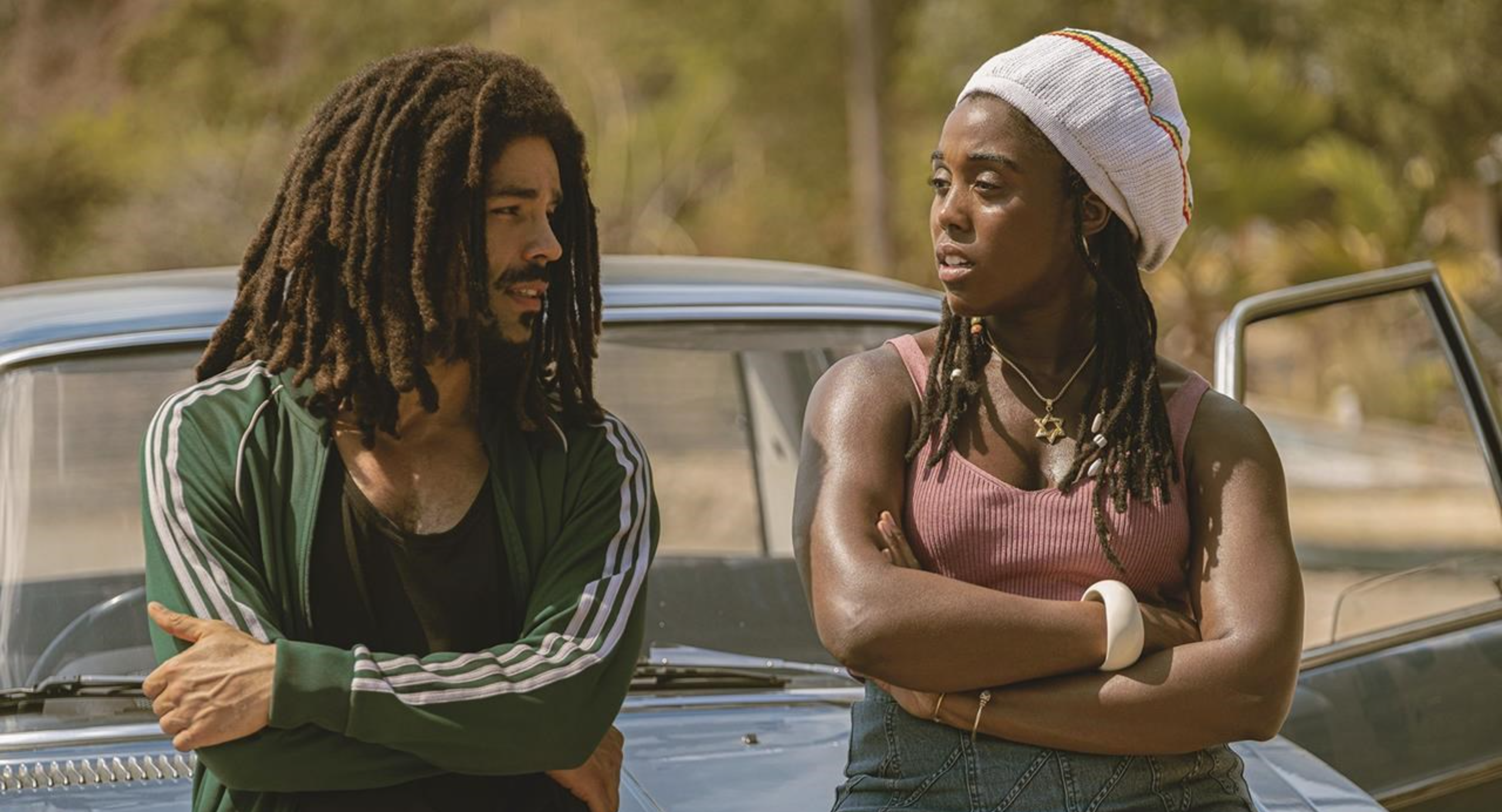Bob Marley: One Love – Film Review
Published March 20, 2024

Bob Marley: One Love, directed by Reinaldo Marcus Green and written alongside Terence Winter, Frank E. Flowers, and Zach Baylin, attempts an ambitious biographical journey through the pivotal moments of the iconic reggae singer Bob Marley’s life, played with earnest vibrancy by Kingsley Ben-Adir. While the film delivers poignant beats and a smattering of electrifying musical sequences, its reach sometimes exceeds its grasp, struggling under the weight of its sprawling narrative and complex subject matter.
Ben-Adir’s portrayal of Marley is undeniably one of the film’s strongest assets. He channels the singer’s charisma, spirituality, and internal conflict with a depth that transcends mere imitation, crafting a multifaceted Marley that feels lived-in and authentic. Ben-Adir’s chemistry with Lashana Lynch, who gives a passionate and layered performance as Rita Marley, forms the emotional backbone of the film, highlighting the turbulent yet enduring love between Bob and Rita amid their struggles and successes.
James Norton, as Chris Blackwell, offers a nuanced view into the music industry’s often complicated and contentious relationship with its artists, particularly those originating from marginalized backgrounds. His interactions with Marley underscore themes of artistry, exploitation, and empowerment, albeit with an uneven hand.
Where the film shines brightest is in its musical sequences. These moments capture the soul-stirring power of Marley’s music, its message of love, unity, and resistance resonating as much today as it did during his lifetime. The reenactment of the Smile Jamaica concert and the subsequent One Love Peace Concert are especially stirring, skillfully blending live performances with archival footage to potent effect.
However, the film’s ambitious scope occasionally undermines its effectiveness. The screenplay endeavors to weave multiple threads of Marley’s life—his music, his activism, his spirituality, and his personal relationships—into a coherent narrative but often falls short. This results in a pacing that feels at times both rushed and languid, leaving some potentially compelling aspects of Marley’s life and the socio-political context of 1970s Jamaica feeling underexplored.
Moreover, the portrayal of Marley’s journey with his illness and its impact on his music and worldview is handled with a sense of inevitability rather than introspection, diminishing the opportunity for deeper emotional resonance. The film opts for a somewhat sanitized view of Marley’s complexities, particularly in regards to his infidelities and the tension within his band, which glosses over the messier realities in favor of a more palatable narrative.
In terms of visual storytelling, director Reinaldo Marcus Green and cinematographer competently capture the vibrancy of Jamaica and the energy of Marley’s performances. Yet, there’s a sense that the film’s visual language could have been pushed further to mirror the experimental and revolutionary spirit of Marley’s music. The film adheres to a conventional biopic format that sometimes feels at odds with its subject’s radical ethos.
The supporting cast, including Tosin Cole and Aston Barrett Jr., deliver commendable performances but are given limited material with which to work. Their portrayals hint at rich internal worlds and dynamics within Marley’s band that the film does not fully explore, representing a missed opportunity to delve deeper into the collaborative nature of Marley’s music.
Ultimately, Bob Marley: One Love is a film with heart, ambition, and moments of genuine beauty, buoyed by standout performances and a timeless soundtrack. However, it’s a film that struggles to find a balance between reverence and realism, often veering towards the former at the expense of a more nuanced examination of its extraordinary subject. While it will undoubtedly appeal to Marley’s legions of fans and those interested in the era’s music and politics, it falls short of delivering a definitive cinematic account of the legend’s life.
As a testament to Bob Marley’s enduring legacy, Bob Marley: One Love serves as a reminder of the power of music to inspire change and foster unity. Despite its shortcomings, the film’s portrayal of Marley’s spirit—unbowed, compassionate, and fiercely dedicated to his ideals—offers a message as relevant today as it was in his time. While not without its flaws, Bob Marley: One Love adds an important voice to the chorus of works celebrating one of music’s most transformative figures.
